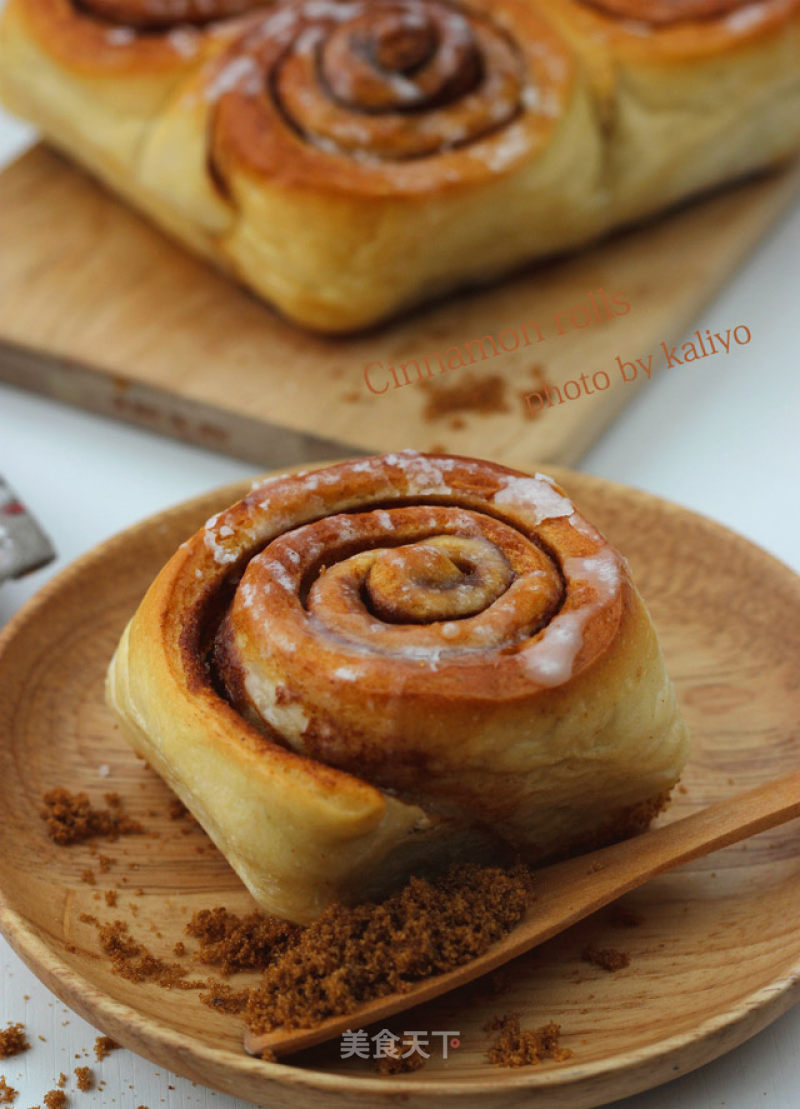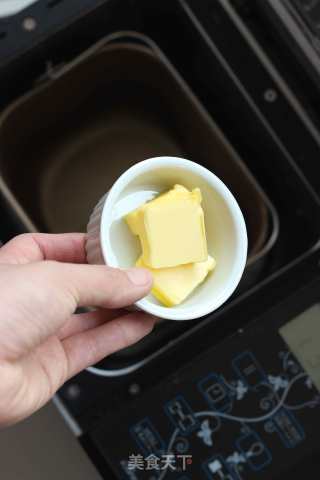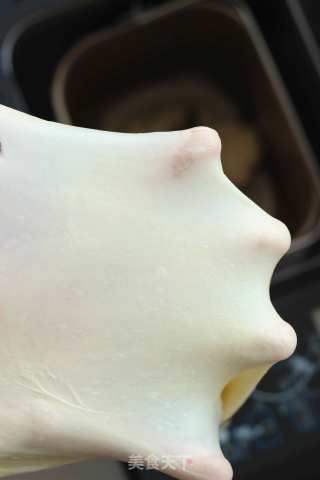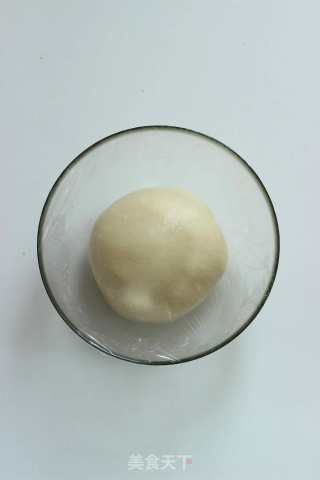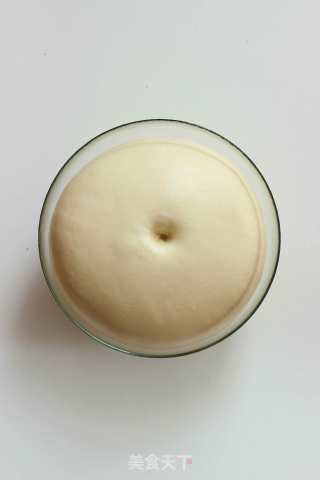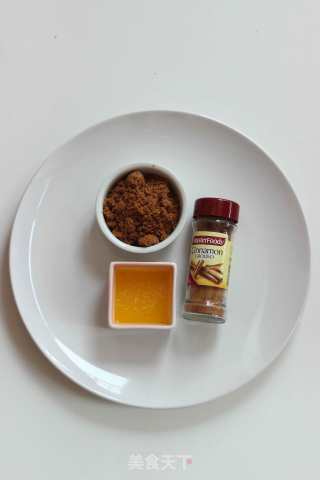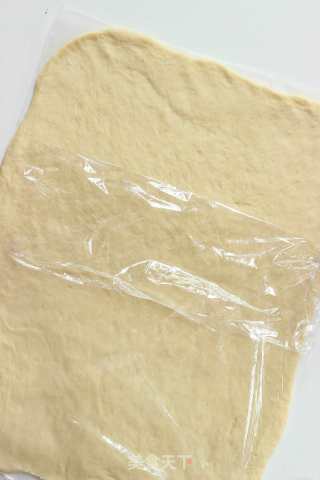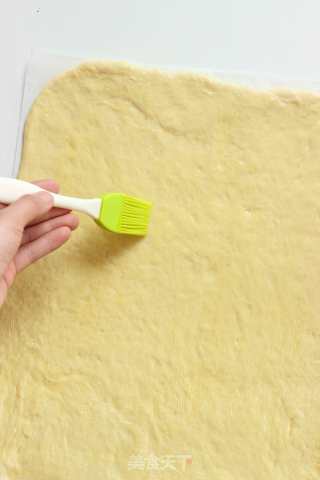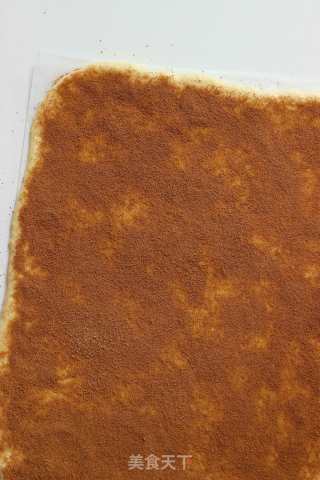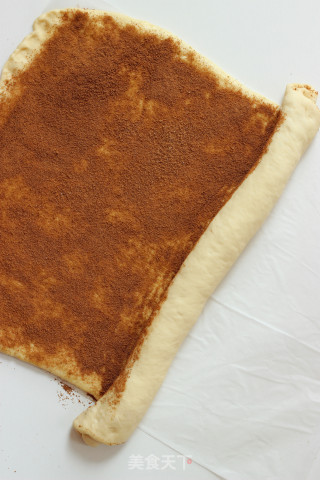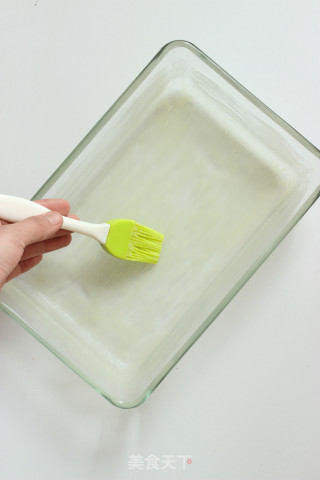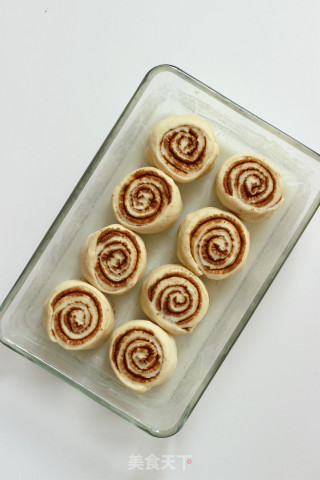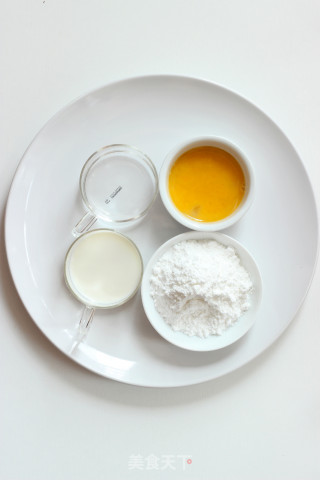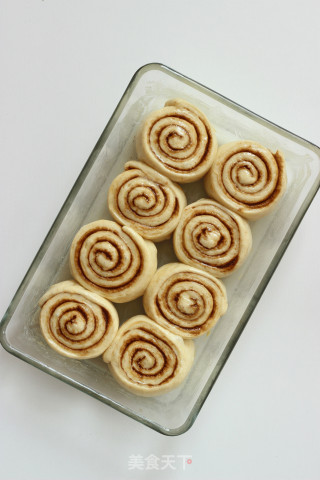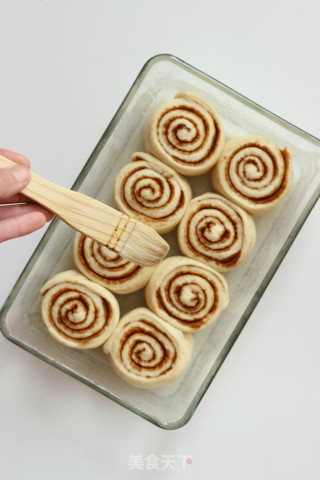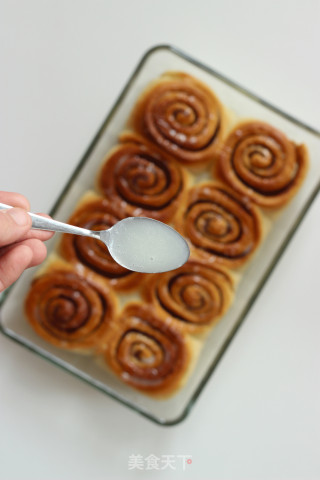【cinnamon Rolls】the Delicacy in Swedish Folklore
1.
After the basic dough is smooth, add softened butter and continue to knead the dough
2.
Take an appropriate amount of dough to test the gluten, and it will be transparent and not broken
3.
Spread a little oil on the container and dough, cover it with a damp cloth or plastic wrap, and ferment at one time
4.
After fermenting to twice the size, take out the exhaust gas
5.
Roll out into a 35cm*70cm thick 0.5cm dough sheet, cover with plastic wrap and let stand for 20 minutes
6.
Prepare the cinnamon sugar raw material, melt the butter; mix the cinnamon powder and the red sugar evenly
7.
Spread an appropriate amount of melted butter on the dough
8.
Sprinkle the cinnamon sugar evenly, leaving about 2cm at the wide end not to sprinkle
9.
Crimping, leaving the white space as a finishing touch, slightly shaping
10.
Spread the remaining butter on the mold
11.
Cut the dough into 10 equal portions (only 8 portions can be placed in the mold, and the other two portions are not shot). Ferment for about 30 minutes in a warm place
12.
Prepare ingredients for brushing and icing, preheat the middle layer in the oven in advance, and fire up and down 180 degrees (baking at 180 degrees for about 30 minutes)
13.
Dough that has been fermented for the second time
14.
Brush the egg wash before putting it in the oven
15.
Mix powdered sugar and milk evenly to make frosting, and pour it on the slightly warm bread
16.
After letting cool, it will become translucent and the icing will harden

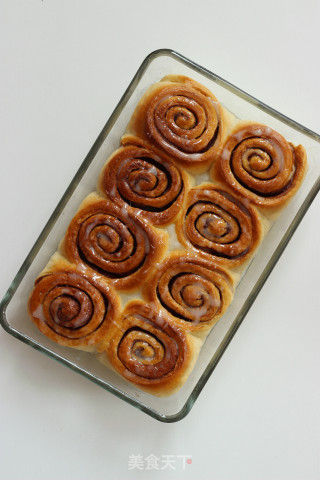
Tips:
Regarding the bread brushing, I got it from a book about last year and recorded it in my notebook. I want to share it with you.
1. Purpose of brushing: *The epidermis looks more shiny, sometimes making the epidermis darker, depending on the degree of brushing; *You can also stick the seeds on the dough, such as sesame, oatmeal, etc.
2. Points to note: * After brushing the dough, there is no need to spray water (the water will darken the color of the bread crust and affect the brushing effect) * The second brushing, before baking and after baking, can also be brushed before fermentation Noodles*The dough is cut and packaged, after brushing, the inside of the cut is in sharp contrast with the skin
3. Types of brushing surface: crispy skin: water (spray or brush the surface); slightly powdery, chewy rough surface: flour (sprinkle); soft surface: melted butter after clarification (brushing the surface); crispy Golden brown skin: 2 tablespoons of egg whites and 1/2 teaspoon of water, mixed and dispersed (ideal viscous brushing material for sticking seeds); medium shiny golden yellow skin: 2 tablespoons of beaten egg liquid Mix and beat with 1 teaspoon of water; shiny dark golden brown skin: 1 tablespoon egg yolk and 1 teaspoon heavy cream, mix and beat; medium shiny golden brown skin: 1 tablespoon egg yolk and 1 Small spoonful of milk, mix and beat for use; very shiny, hard skin: 11/2 small spoons of cornstarch and 6 tablespoons of water. Stir cornstarch with 2 tablespoons of water, boil the remaining 1/4 cup of water, pour in the corn paste and stir, simmer for about 30 seconds, or the mixture will become more viscous
And transparent. Cool to room temperature, brush the surface before baking, and brush again after it is hot.
Table spoon 1table spoon=15ml
Tea spoon 1tea spoon=5ml
Measuring cup (cup) 1cup=235ml
Super long-winded:
*The water absorption of dry powder is different, it is best to keep it when adding liquid
*Fermentation container, in addition to preventing adhesion, oil can also keep the moisture of the dough surface
*If you sprinkle cinnamon sugar, you think the sprinkling is uneven, I suggest you sift it to distribute it more evenly
*Edge curling is a problem that takes a long time to practice. My curling technique is exposed after baking
*A little water sticks to the white space, which can better bond with the dough sheet
*About icing, you can omit if you don’t like it

